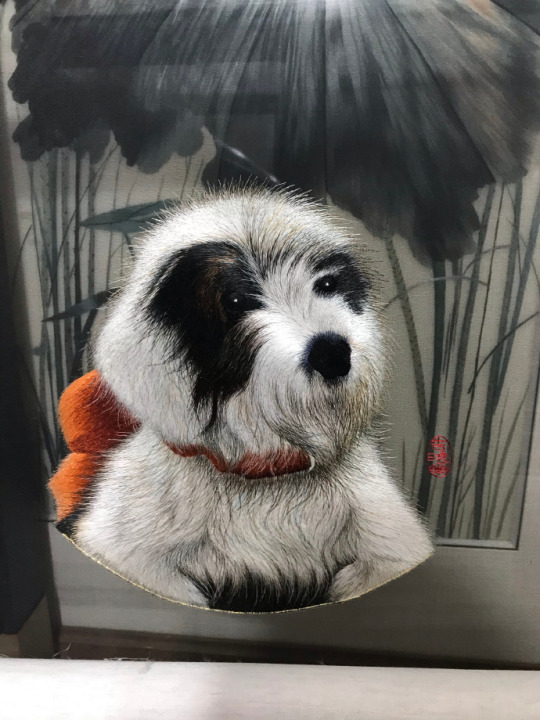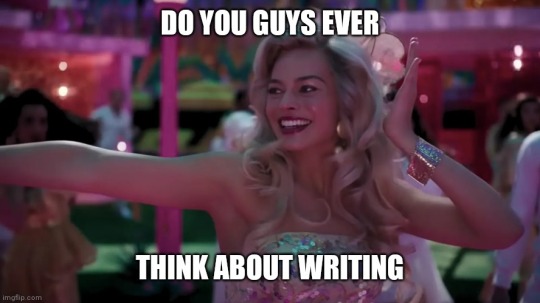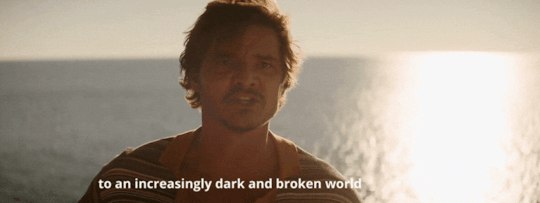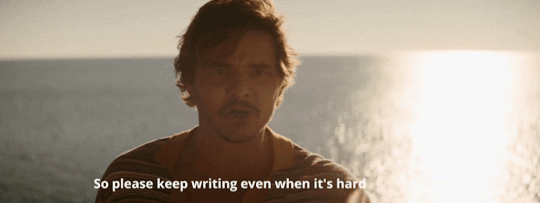Don't wanna be here? Send us removal request.
Text
Soo-young: *staring at Isaura* is anyone gonna take care of that?
Also Soo-young: *doesn't wait for an answer*
4 notes
·
View notes
Text
Palesa: *returns from the dead to roast her husband's decorating choices*
#Sauvarin Sunday#writeblr#hoping to create more content for this story#that has taken forEVER#it turns 9 Nov 1st T_T
3 notes
·
View notes
Text
In 1990, the high school dropout rate for Dolly Parton's hometown of Sevierville Tennessee was at 34% (Research shows that most kids make up their minds in fifth/sixth grade not to graduate). That year, all fifth and sixth graders from Sevierville were invited by Parton to attend an assembly at Dollywood. They were asked to pick a buddy, and if both students completed high school, Dolly Parton would personally hand them each a $500 check on their graduation day. As a result, the dropout rate for those classes fell to 6%, and has generally retained that average to this day.
Shortly after the success of The Buddy Program, Parton learned in dealing with teachers from the school district that problems in education often begin during first grade when kids are at different developmental levels. That year The Dollywood Foundation paid the salaries for additional teachers assistants in every first grade class for the next 2 years, under the agreement that if the program worked, the school system would effectively adopt and fund the program after the trial period.
During the same period, Parton founded the Imagination Library in 1995: The idea being that children from her rural hometown and low-income families often start school at a disadvantage and as a result, will be unfairly compared to their peers for the rest of their lives, effectively encouraging them not to pursue higher education. The objective of the Imagination library was that every child in Sevier County would receive one book, every month, mailed and addressed to the child, from the day they were born until the day they started kindergarten, 100% free of charge. What began as a hometown initiative now serves children in all 50 states, Australia, Canada, and the United Kingdom, mailing thousands of free books to children around the world monthly.
On March 1, 2018 Parton donated her 100 millionth book at the Library of Congress: a copy of "Coat of Many Colors" dedicated to her father, who never learned to read or write.

203K notes
·
View notes
Text


Simon Petrikov Future Human concept art by Michael DeForge
2K notes
·
View notes
Text
it's rotten work, but without the rot nothing can grow
161K notes
·
View notes
Text

the artist’s way, week one
a book for the people that are “creative in spasms. creative as an act of will and ego. creative, yes, but in spurts like blood forma a severed artery”
the basics: 1. write three morning pages everyday (stream of consciousness, to free your brain space and be able to focus on what you care most), 2. take yourself out in an artist date every weekend (to reward and inspire you)
pay attention to the changes in yourself and the synchronicities, note the negative feelings that rise up; non-attachment to the result of your art, rather learn to live in the process
reminder: we need to stop demanding that we look good, it is impossible to get better and look good at the same time
281 notes
·
View notes
Text
Cheat Code #2 for accommodating disabled characters in sci-fi/fantasy:
How you aid a disability depends on if it's a new development or had always existed.
i.e.: If someone's lost their legs to a griffin biting them off last week, giving them steampunk prosthetic legs is a good aid. There's something they can't do, that they very recently could, that they need to learn to work around. The prosthetic legs still need an adjustment period to learn how to use them, but your character knows how legs should work and can figure it out more easily.
If someone lost their legs because, as a child, they wandered away from the space field trip and got partially eaten by a carnivorous plant, then it depends. Prosthetic legs can technically work, but the longer the character was without legs, the harder it'll be to re-learn how to use them. You might want to go with bionic legs for short distances, but a hover chair for daily use.
If someone was born without legs, then prosthetic legs are more hindrance than they're worth. Your character has never had legs, and has no idea how they're supposed to work.
Imagine if you're in a world of centaurs; you're given prosthetic hind legs, and now expected to be able to climb up cliffs with the grace of a mountain goat. It's a whole new skill you'd have to learn, and you would get annoyed with it very fast; how are they supposed to sync with the legs you already have? How are you supposed to balance? You can't feel anything, you don't know how much space it occupies.
Someone who's always been disabled doesn't need the thing they were born without, they need aid that lets them do what everyone else can in a way they're familiar with. If your character has always been deaf, glasses with subtitles appearing on them are infinitely more useful than aids that let them hear, because hearing when you've always had silence is going to have a steep learning curve and be ridiculously overwhelming.
Your rule of thumb?
Try to give them something they're used to.
Note: This is different with very small children, because they're already learning how to use every part of them. If a toddler in your sci-fi was born without legs, they can be taught to use bionic legs at a very young age, but it has to start early or it'll run into the problems above.
Cheat code 1: How to avoid eliminating disability in your setting
Cheat Code 3: How to make your setting itself disability-friendly
15K notes
·
View notes
Text
So... I found this and now it keeps coming to mind. You hear about "life-changing writing advice" all the time and usually its really not—but honestly this is it man.
I'm going to try it.

102K notes
·
View notes
Text
my dad likes to call the stretches of time where you’re not creating “dreaming periods” and says that they’re meant to allow you to absorb all of the beauty, life, and inspiration from the things around you so that when you’re able to create again, you will have fanned your spark back into a flame. sometimes its hard to see those moments as anything but stagnation, but he always says that they’re natural and healthy and needed—things that should be embraced rather than feared.
137K notes
·
View notes
Video
双面三异绣 shuāng miàn sān yì xiù is a new genre of suzhou double-sided embroidery. It is done on both sides, but the patterns, stitches and colors are different, hence the name 双面三异绣( literally double-sided triple difference embroidery). It enables the viewer to appreciate the image of traditional chinese embroidery art with different patterns, stitches and colors on one embroidery.
cr 花锦城手工


64K notes
·
View notes
Text
Literally cannot emphasize enough that my #1 writing advice is to stop being afraid. Stop being afraid of sounding too cringe, or too stupid, or too horrifying, or too horny, or too weird, or too much, or too little, or too you. You need to put your entire pussy into your art. Sure, it won't be to everyone's tastes, but if you keep yourself to the blandest tamest safest roads possible you will be of no one's tastes, not even yours.
86K notes
·
View notes








